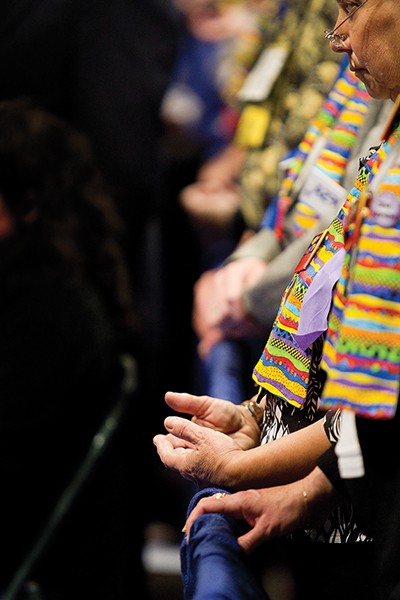The Methodist mess in St. Louis
The UMC's response to declining membership is to spend millions deciding who else we can exclude.

Before the United Methodist Special General Conference opened on Saturday, we prayed. Perhaps God would miraculously grant a fruitful discussion among 800 disputants who have very little in common except our cross-and-flame nametags. We prayed for openness to different points of view, unity, communion, gracious listening, holy conferencing, empathetic feelings, and generosity of spirt.
It didn’t work.
At some point I shifted my own prayers to, “Lord, please melt the hardened hearts and smite everyone who intends to vote against the One Church Plan.” This plan, recommended by the UMC bishops, aimed to give more discretion to local churches and annual conferences in LGBTQ inclusion, ministry, and mission. It was summarily trashed early in the voting; the rival Traditional Plan, which reaffirms the denomination’s prohibitions against same-sex marriage and LGBTQ clergy, was approved.




